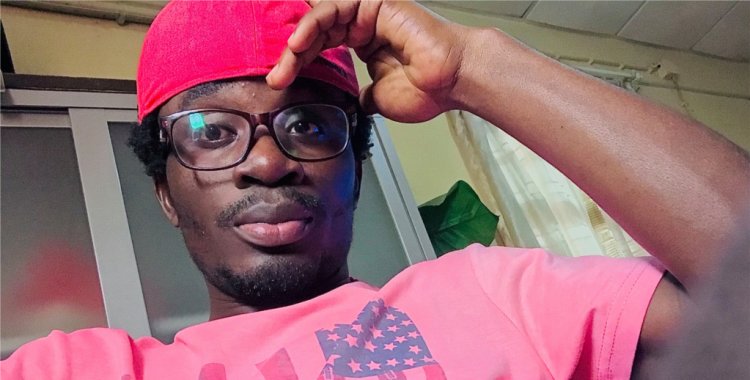In the neighborhood of São Pedro da Barra, on the outskirts of Luanda, dozens of people gathered around a table with candles, which were lit during Friday night to light the photo of Inocêncio Matos "Beto", at the door of the house where he lived with his family.
This is how Angolans honor their dead. The death (wake) will last at least three days, during which the family will feed and drink relatives, friends and neighbors, and mourn the loss of their loved one, amid tears, songs and religious and traditional dances.
"Beto," a 26-year-old student, participated in the attempt to demonstrate frustrated by the police on Wednesday and lost his life in circumstances yet to be clarified: the medical report speaks of aggression by blunt object, but witnesses at the place where the young man fell say he was shot by the police.
In the photo of the death, "Beto" is still a young man who smiles, in a formal dress, perhaps on his way to Agostinho Neto University where he was attending the third year of Computer Science.
Alfredo Miguel de Matos, the father, shows Lusa the medical report indicating that the student who died at the Américo Boavida hospital was the victim of "physical aggression with an unspecified object", resulting in "severe traumatic brain injury, open fracture and penetrating right frontal with exposure of brain tissue.
But for the former FAPLA (Armed Forces of MPLA) combatant, who lost a son a year ago and now mourns again for "Beto", the explanations are not convincing.
"They tell us that Innocent entered the hospital alive, but for everything that mirrors the document itself we believe he entered already dead. What happened was nothing more than brutality, a disproportionate attitude of the police forces," he says.
The former military man understands that the police should not only go out on the streets to repress: "They can arrest, if necessary, and listen better to people. I believe that if they had the opportunity to listen to him, they would have a different perception".
"We can't stand this pain," he laments, dismayed, describing his son as "a pride" for his family, which lives with difficulties.
"In the kind of families we are, having a son at this level was really the pride of the family, a completely regressive son, with no reason to complain although certain people want to pass on the distorted information about the individual he was," he declares to Lusa.
Asked if the family will proceed with a lawsuit, Alfredo Matos states that they will not be able to hire an attorney for financial difficulties, thanking those who "in good faith" want to sponsor the lawsuit to "do justice".
In a tent next to the house, a group of friends also say goodbye to "Beto", a native of Uíge.
Jacinto Julião, 24 years old, friend and neighbor, regrets the "very big loss" and says that Innocencio was "a good person who never hurt anyone.
"I don't know if fighting for our rights is a crime, I'm not getting it", he says.
He reports about the death what they told him: "I heard that the cops tried to scare the population away, they said it was a direct shot to Innocent's head. They say he died on the spot, not on his way to the hospital".
A young "scholar who had much to give in life," describes another friend, Francisco Domingos Panzo, 34.
"He went out to give voice to the people, to the youth, and was killed for it. It's a pity, they broke up his family, his father invested a lot in this kid and he invested a lot in his studies, he didn't deserve what happened to him. We hope that acts like that don't happen anymore, so that young people like that, who think about a better future for everyone, are heard more," he says.
Manuel Vieira did not know Innocent, but he wanted to show solidarity to his family.
"It is really very sad, the Angolan youth can not admit this, we must condemn these acts of the Government that are wrong," he says to Lusa, regretting the departure of "a young man who could give a lot to this country, a young man who had a dream of seeing Angola better.
"The police had nothing to take our brother's life," criticizes Manuel Vieira, continuing: "They say that the future of Angola is in the youth, but we are all standing here, they do not take advantage of this strength that the youth has, they simply take our lives. Until when?"
Leo Paxi Kennyata, a civic activist, also came to pay his respects to "Brother Innocent, who was a victim of police brutality on November 11 in the middle of a demonstration.
"There's a bullet, yes, we don't know whether a rubber bullet or a real bullet, but it's really caused by the police," he points out, contrary to the police and doctors' versions.
The youth launched a campaign to help Inocêncio de Matos' family and accept financial donations and material goods in order to "meet some of the family's needs and give a proper burial" to his "loved one," he says.
Social networks are already calling for vigils in memory of Innocêncio de Matos, who became a "martyr" and involuntary hero for the thousands of young people who wanted to make their voices heard on Independence Day, in a demonstration banned and repressed by the police.







